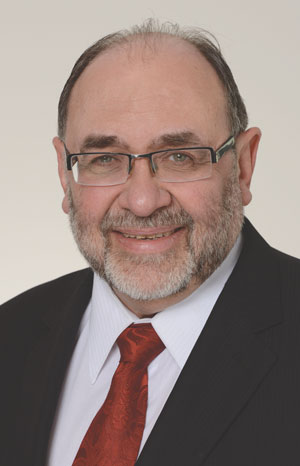In another stab at curbing the large number of real estate fraud cases it sees, the Law Society of Upper Canada is working on a set of declarations that will have lawyers confirm they know how to avoid being a victim.

The declarations, if passed, will be a part of the annual report for lawyers who act in real estate transactions.
Traditional victims aren’t the only ones hit hard by mortgage fraud, according to the law society, which notes it devotes “significant resources to complaints and claims arising from real estate transactions, including lawyers engaging in mortgage fraud.”
According to documents released for the Jan. 24 Convocation, the law society took longer to complete regulatory investigations in 2012 than the previous year. The committee attributed much of the increase to real estate and mortgage complaints.
In 2012, the median age of complaints to the law society was 245 days. That represents an 8.6-per-cent increase from 2011. But real estate cases skewed the numbers, the law society reported.
LawPRO has also felt the sting.
Real estate cases comprised 29 per cent of reported claims from 2000 to 2011, says Dan Pinnington, LawPRO’s vice president of claims prevention and stakeholder relations. “Consistently over that period of time, they’re one of the largest if not the largest area of claims in our portfolio,” he says.
Benchers have yet to vote on the motion approving the proposed declarations after Convocation sent it back to committee for further work.
“Despite numerous law society communications, hearing panel decisions, and amendments to the Rules of Professional Conduct, some lawyers involved in disciplinary proceedings claim that they are unaware of some or all of their obligations under the rules regarding real estate practice,” the motion states.
A recent case, in fact, dealt with some of the issues the declaration would address. On Jan. 16, the law society suspended Mississauga, Ont., lawyer Charles Ato Amissah-Ocran for two years following a real estate fraud investigation.
The suspension is retroactive to Dec. 2, 2010, and continues “indefinitely thereafter” until Amissah-Ocran responds to several orders by the law society.
One of the accusations levelled against Amissah-Ocran involved a failure “to be on guard against being duped by unscrupulous persons in connection with 12 transactions.”
Amissah-Ocran has in turn sued a former employee, Claire Graham, for loss of income on account of fraud, conspiracy, and breach of fiduciary duty. The lawyer kept Graham on staff performing litigation support even after a law society investigator told him she was a known fraudster.
He then assigned Graham’s sister and nephew to work in the real estate portion of his practice. In addition, Amissah-Ocran noted in his law society factum that he gave Graham his Teranet diskette and password for electronic title registrations in April 2008.
“With hindsight, I look so foolish,” Amissah-Ocran told Law Times in 2010. “My failure to cut all ties with Claire was the biggest mistake of my life.”
The proposed declarations are “another way to bring those issues home,” says Bencher Alan Silverstein, a certified specialist in real estate law. “Mortgage fraud is a huge issue. It’s a huge problem with the profession; it’s a huge problem with public; and it’s a huge problem with the lenders.”
If the motion passes, lawyers will have to check off six statements that include confirming that in the past year, they haven’t allowed anyone other than themselves to use their electronic title registration diskette.
They’ll also have to say they have supervised all non-lawyers who worked for them and haven’t acted for both a borrower and a lender in a real estate transaction expect in limited circumstances.
But when the motion comes back to Convocation, it’s sure to draw dissent from some benchers, says Silverstein.
“I expect there will be opposition by some members of Convocation who do real estate who feel that the real estate bar is being targeted by this,” he notes.
“And I agree — they are being
targeted. But my response very simply is the real estate bar is also being targeted by the fraudsters. We’re not seeing the same kind of activity with criminal lawyers or litigation lawyers and family lawyers and we have to step up and deal with this.”
Not allowing access to Teranet diskettes to staff or giving out the password for them top the list of declarations. And that’s for a good reason, says Silverstein, who sits on proceedings authorization committee at the law society.
“It’s called the Teranet diskette. That’s not really what it is; it’s the lawyer’s electronic signature. And the lawyer is signing the transfer because we have the exclusive right to sign transfers. This is the same as signing a trust cheque and anybody who looks at it differently is wrong. It is you signing that document.”
While the declarations can be a friendly reminder of the rules, some members of the bar say signing them at the end of the year may be too little too late.
“Signing off a declaration is sort of a post-opportunity. It’s something you do after the fact, after the year is done, as opposed to learning every day and being reminded,” says Karen Yolevski, a partner at Basman Smith LLP.
Yolevski says the “glamorous” side of fraud, such as fake certified cheques, gets much of the attention when “under your nose, a trusted clerk or employee is doing something like this.
“You hear about it after the fact but you don’t hear about a lot of prevention that can go into it,” says Yolevski, who adds regular courses under the law society’s continuing professional development program for real estate lawyers might be a better option.
For more, see "
Staff ruined me: lawyer."

 The declarations, if passed, will be a part of the annual report for lawyers who act in real estate transactions.
The declarations, if passed, will be a part of the annual report for lawyers who act in real estate transactions.